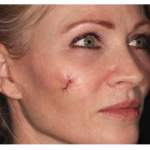Lower Leg Wound Dehiscence
HISTORY
74-year-old man presents with BCC of left lower leg treated with Mohs excision and closure on 2-27-18. Patient presented 5 days post closure with wound dehiscence. Cutimed wound sponge dressing was used for wound management. Debridement was performed 3-16-18. Plan is for closure with matrix xenograft.
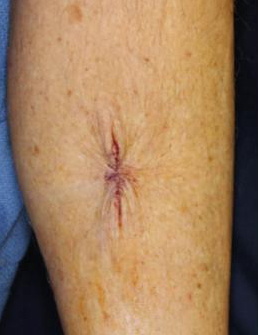
Layered closure with deep sutures of leg wound
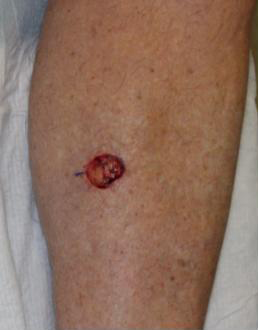
2.0 cm excision defect of BCC of lower leg
DISCUSSION
Lower leg wound dehiscence is a problem of tissue vascularity and wound tension. In this elderly but healthy man, the wound tension was the primary factor. Age is a major contributor as well. In a younger patient this level of wound closure tension would be tolerated. The mechanism of dehiscence in this case was devascularization of deep tissue with high tension sutures. As tissue melts from the suture, the sutures “flow” through the tissue releasing the tension. This is also known as the “cheese-wire” effect. With deep tension release, the wound edges separate. This becomes apparent postoperative day 3 to 5.
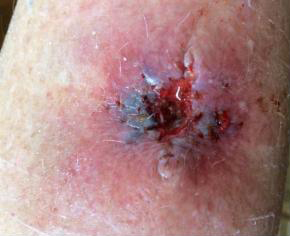
Lower leg wound dehiscence post-op day 8. Wound showed signs of dehiscence at post-op day 5.
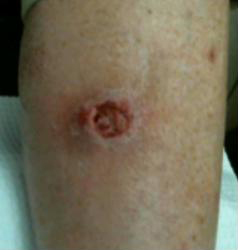
Lower leg wound 17 days post-op and 12 days post dehiscence.
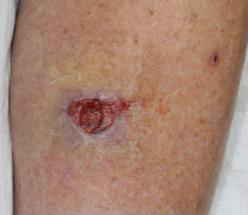
Leg wound debridement 3 weeks after initial closure.
Another common cause of dehiscence is a hematoma that impacts vascularity of deep tissues. Infection can also complicate hematoma accelerating the same process.
Avoidance of high tension closure is the only way of avoiding dehiscence in some cases. That is based on physician’s judgement and experience. Alternatively, the wound can be allowed to heal by secondary intention, with xenograft placement, or with skin grafting. Misjudging the tissue tolerance of tension and its subsequent dehiscence delays patient’s recovery by up to 14 days compared to alternative closure techniques.
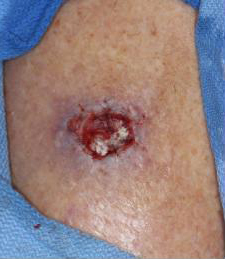
Oasis xenograft wound closure
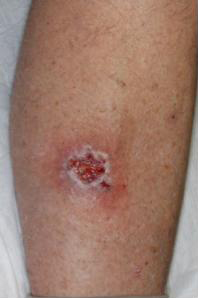
1 week after wound coverage with Oasis xenograft.

